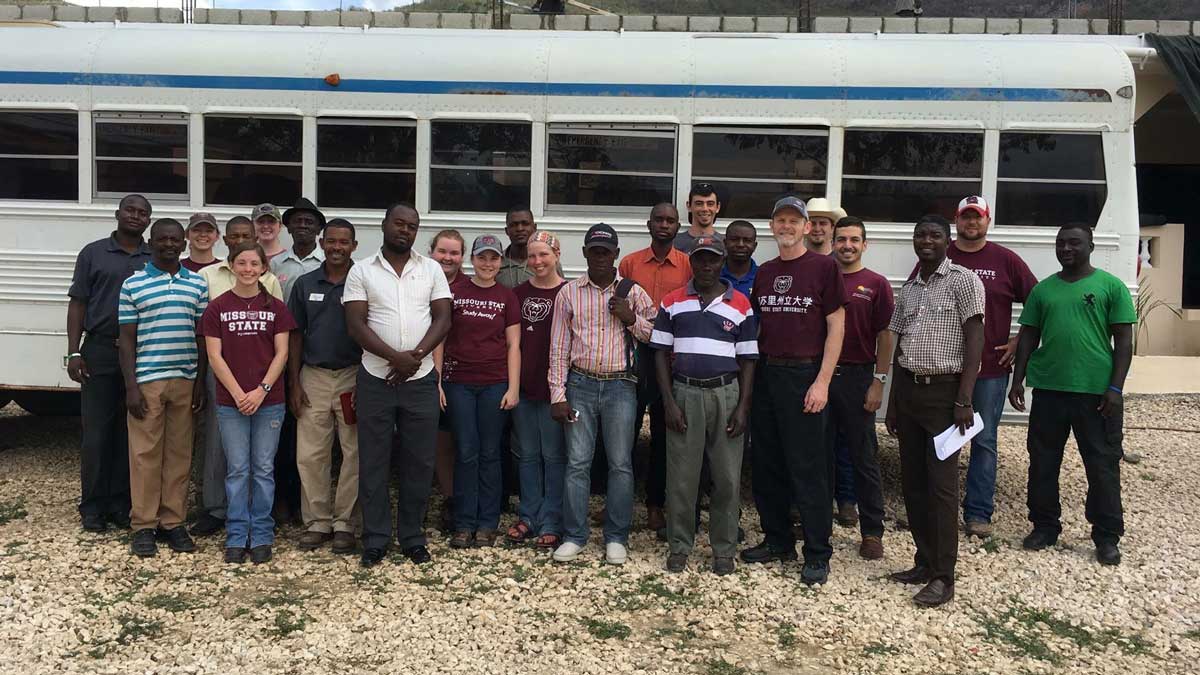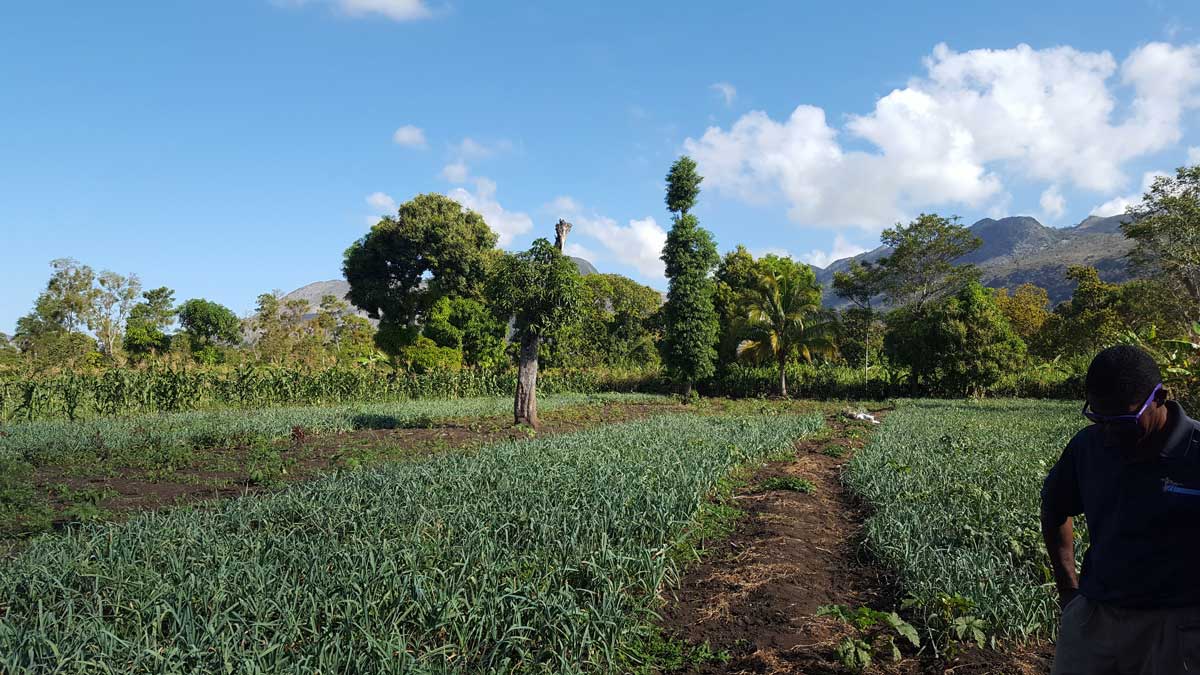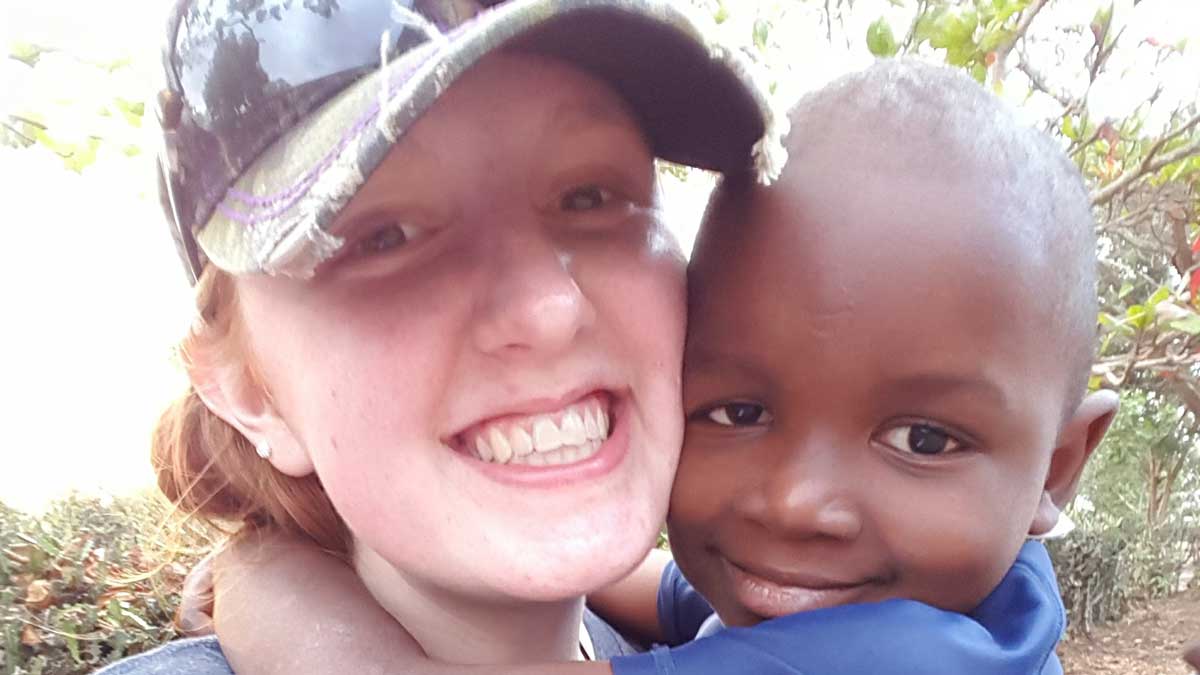Over the 2017 spring break, a group of 10 agriculture students went on a Service Learning Study Away trip to Haiti.
Led by Dr. Michael Burton, professor of agriculture, in partnership with Project H.O.P.E., the trip involved observing production systems, volunteering at the Haiti Home of Hope orphanage and training agricultural producers in areas, such as animal health, soil and water conservation and composting.
Agriculture students Karlie Beckett and Erika Cooperman were part of the group and shared their stories from the trip.
This is Karlie’s story.
What we did there
I want to do agricultural missions work after I graduate and this trip was very much along those lines. While in Haiti, our team visited local farmers and observed the techniques they use and what challenges they face. We used what we learned from the farmers and drew on knowledge from research to put together presentations that we shared with the Haitian farmers.
We also had the opportunity to spend time with children at an orphanage next door to the missions base where we were staying. There, we helped break ground for a garden and devised a plan for using the orphanage’s laundry water to irrigate it.
I absolutely loved the trip to Haiti and I hope to go back in the future. One of my favorite parts of the trip was visiting the orphanage. I learned that children are the same no matter where they live or what language they speak.
Even in spite of the language barrier, we were able to love them, and they us. It was a great privilege to serve the children and their caretakers in breaking ground for the garden, working on a leaky sewage system, and breaking up an old foundation and then digging canals to help with water runoff.
The boys at the orphanage were eager to help us, which was so fun to see. To me, their participation was an indicator of the desire Haitians have to overcome poverty in their country.

Changing my misconceptions
Haiti is the most impoverished country in the western hemisphere. Going in, I expected that the people didn’t have a good understanding of how to care for their crops properly. I was incredibly wrong. We learned so much from the Haitians.
They are brilliant people; they just lack resources. The goal of our team was and is to share our resource of knowledge and help them develop sustainable methods to use said knowledge. Sustainability is the key. We want to help the Haitians learn how to help themselves.
Becoming a global citizen
When a person travels into a new place with new people of a different culture, they always gain a different perspective of the world. This was certainly the case for me after traveling to Haiti. I saw what poverty truly looks like. I saw people who didn’t have clothes to wear or homes to live in. I saw sick children. I saw the skinniest animals, and neglected and overused land.
Through this, I began to see my responsibility as a world citizen. Just because I’m a college student with limited resources does not mean I cannot make a global impact. I have the responsibility to contribute and be a part of my community here at Missouri State and in the world.
That seems like such a large task. Mother Teresa said, “If you can’t feed a hundred people, then just feed one.” You may not be able to impact the entire world, but you can impact one life, one family, one community, one town or perhaps even one country.

This trip also allowed me to see my responsibility as an agriculture student. Agriculture is about more than waking up at the crack of dawn to feed animals, spending hours on a tractor sowing crops or getting the highest yield. Agriculture is about people. I believe people have the right to live and to live well and flourish, they must have access to proper food.
Solving the problem of hunger would potentially solve many other issues of unrest we face in our world. Agriculture plays a critical part in addressing the hunger problem. Additionally, agriculture gives us a way to reach people and minister to them. Agriculture changes lives.

